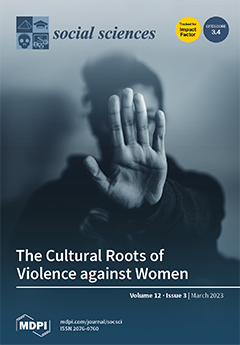The present paper aims to analyze and understand, from an intersectional point of view, the extent and the characteristics of racism in football in Portugal, based on the perspectives of football fans, coaches, amateur players, professional players, journalists, parents, and other elements directly
[...] Read more.
The present paper aims to analyze and understand, from an intersectional point of view, the extent and the characteristics of racism in football in Portugal, based on the perspectives of football fans, coaches, amateur players, professional players, journalists, parents, and other elements directly or indirectly involved in the modality. Using an online questionnaire, this exploratory study involved 1681 participants, 456 self-identified as women, 1221 as men, and 4 as non-binary, aged between 13 and 61 years old (
M = 33.02;
DP = 12.64). The results show gender, skin color, ethnicity, sexual orientation/gender identity, and functional diversity are the main factors explaining discrimination in football, with differences between genders. Nearly 70% of women and 50% of men admitted the existence of racism in football in Portugal. In addition, associations between participants’ condition, age, perceptions, and experiences of racism were found, with amateur players and younger participants revealing a stronger position concerning the topic. This study can inform contemporary debates in critical research, particularly around football, discrimination, and cultural citizenship. Intersectional research across football studies is crucial to better understand the racialized aspects of football and develop better policies that can prevent and combat racism.
Full article





